Lonely in La Esperanza
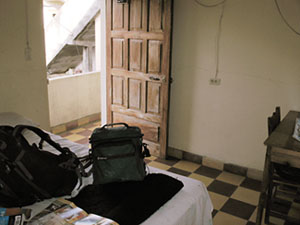 |
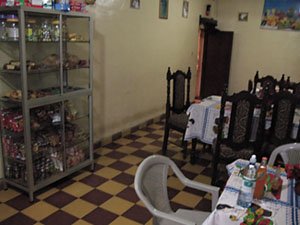 |
The hotel's restaurant offered a big set dinner for 48Lps. Even better, the restaurant TV was showing an amazing telenovela called "Vivan los Niños," with a multi-racial cast including an Asian kid who busted out some awesomely bad karate moves, and a woman dressed as a leopard with accompanying "rawr!" noises any time she appeared on screen. With a few Imperials, it was a relaxing night.
The next day I took the long walk to the main part of town, withstanding shocked stares and whispers of "Chinita! Chinita!". The odd thing was that in a town this small, I saw two Chinese restaurants. I filed that fact away for later.
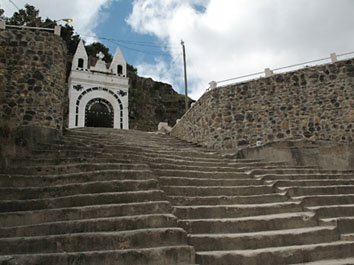 | 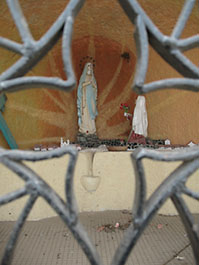 |
According to my guidebook, the main road out of town turns into the steps leading up to a cave containing La Ermita, a chapel used mainly on special days. However, at the actual entrance the sign was for "La Gruta," and the actual chapel bore a plaque for "Immaculado Concepcion." The views over the town were lovely, and the small park surrounding the chapel was popular among couples and children.
I had nothing else in mind but chilling out in a mountain town (1980 meters) until my long travel day to Roatán. La Esperanza was a good place for walking around and people-watching. There were a few markets in town, very local ones that sold nothing worthwhile for tourists: chickens, underwear, plastic tubs and DVDs. It certainly would have improved with company.
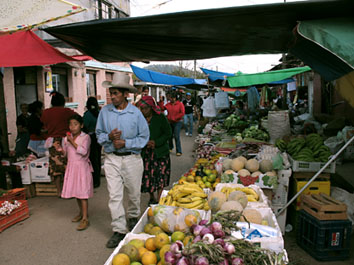 | 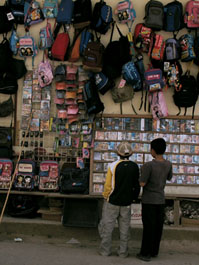 |
The highlight was finally speaking with someone in a Chinese restaurant, something I'd wanted to do since I first began traveling in Latin America. I'd put it off because I was uncomfortable interrupting a restaurant worker's busy day when I certainly didn't plan to order the Latino take on Chinese food, but in La Esperanza, I didn't have much else to do. Without fail, I found myself mystified by the locals' reactions to my foreign-ness; after all, weren't they seeing Chinese people all the time?
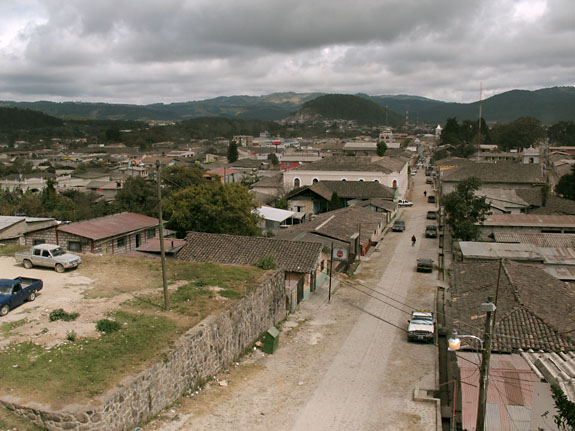
View over La Esperanza
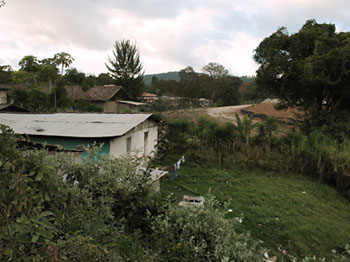 Outskirts of La Esperanza, near my hotel |
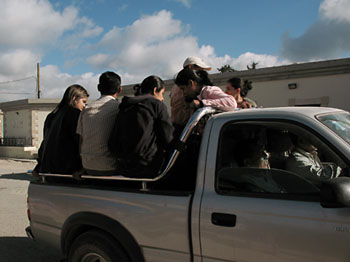 Jalón, the typical mode of transport in the mountains |
She was from Canton, and used to work in a factory when her husband decided he wanted out of China. She told me there were actually three Chinese restaurants in town, which baffled me. Her husband didn't acknowledge my presence, which I found odd—considering there were probably 4 other Chinese people that he knew in town, why wouldn't he be interested in meeting the new one?
They were paying 8000L per month for their restaurant/home—no small change in Honduras. I genuinely could not understand how this could be better than life in China. Her only explanation for her presence was that her husband had arrived first, and didn't seem to understand I wanted to know what first possessed her husband to come here, not just to Honduras but to La Esperanza, Honduras.
Four children, never any spare time, no English, Spanish limited to what was necessary for the restaurant. Her husband could speak Spanish and was more free. She seemed dreadfully lonely. I was happy I'd given her a chance to speak Chinese for a while with someone new, to laugh over my childlessness while she bounced her sleeping baby, to ask me about my Honduran travels as she'd never been out of La Esperanza. I felt even more fortunate that I got to leave.